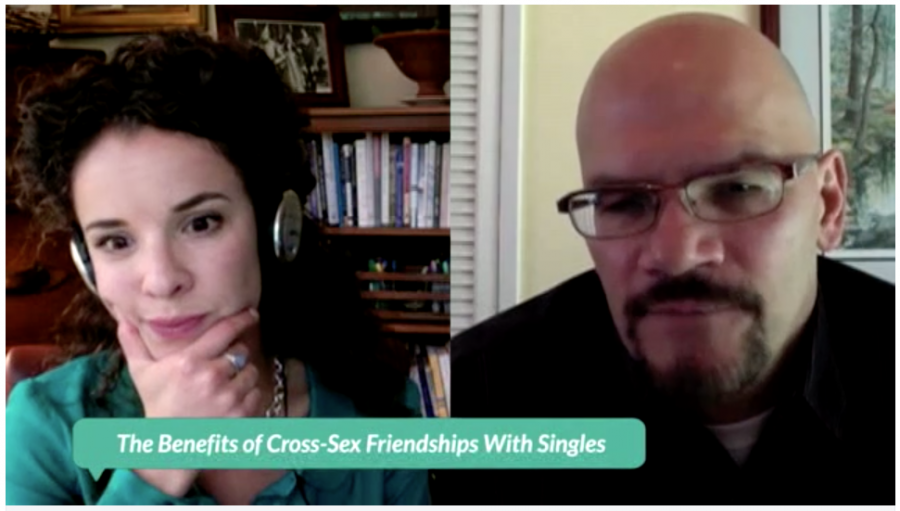Friendship, not sex
Continuing the cross gender relationships discussion, the importance of separating romantic relationships from friendships is clarified.
Professor Tim Muehlhoff and Jonalyn Fincher continue the cross gender relationships discussion and the importance of separating romantic relationships from friendships is clarified.
November 18, 2014
Let us agree, for the sake of argument, that friendships are a good and necessary part of healthy human life. Let us also agree that, as Christians, we handle discussions about sex and discussions that seem like they could potentially touch on a topic that could maybe relate to sex, poorly. We quickly get uncomfortable and fearful and closed off. In a recent Afterdark Chapel, Sarah Schwartz who studies biblical exposition at Talbot school of Theology, detailed this weird tendency to obscure truths about our sexuality with fear and often unfounded belief in our fragility.
FRIENDSHIP INDEPENDENT OF GENDER
Last week, I broached the subject of the importance of cross-gender friendships. After exchanging emails with Jonalyn Fincher, who spoke on cross gender relationships at the 2012 Torrey Conference, I realized much of our hesitancy to create opposite gender friendships stems from a fearful view of our ability to control our sexuality.
Not surprisingly then, when we take friendships and community — both Biola buzz words that seem generally accepted — but have them exist between members of opposite genders we suddenly get pregnancy scares. Having opposite gender friends should require a certain awareness because there is a sex thing in play. But when two people of opposite genders get together they do not automatically jump right to sex. Sure, you may be attracted to someone. Wonderful. Maybe you should date them.
But regardless of their dating availability, you still have to do the work necessary to become their friend. Becoming friends with someone does not depend on their gender. Friendship and marriage are distinct things, though they often exist together. Our cultural aversion to intimate relationships between genders seems to have more to do with a fear of vulnerability than a realistic concern for guarding our sexuality.
FEAR OF VULNERABILITY
As a group, I think twenty-somethings are in danger of becoming unable to create any lasting, true friendship. To try and create this intimacy, I think we turn to sex. Or worse, we believe this intimacy will come with sex once we are married. Both misunderstandings of what true friendship is and how to rightly cultivate it does real damage.
In a recent online discussion between Professor Tim Muehlhoff, a professor of communication studies at Biola, and Jonalyn Fincher, both agreed that rightly understanding friendship remains at the core of the cross gender friendship discussion. Being friends with someone requires knowing them, and that they know you as well. I think we all agree with this idea of friendship on principle, but begin to qualify and constrict it as we apply it to particular people and groups.
My being vulnerable with a woman is a bonding act. She sees me more clearly afterward, perhaps even seeing something that I would not want everyone to see clearly. A kind of exclusivity and privacy comes with this type of bonding. It seems like the kind of thing that forms friendships and marriages. But these remain different types of relationships. By conflating the two, we lose the benefits of friendships and undercut an important characteristic of healthy marriage.
ENGAGING IN FUFILLING FRIENDSHIPS
We need friends who see the deepest, darkest parts of us. But this kind of friendship proves difficult and requires a particular set of skills. Without clear communication, appropriate boundaries and community involvement, cross-gender friendships run the risk of becoming romantic. While romantic relationships also properly express human community, they remain a more exclusive and private form of interactions than friendships.
Ultimately we should strive to recognize our ability to have same-sex friendships. We can decide to cultivate the skills necessary to engage in vulnerable and fulfilling friendships with members of the opposite sex without sacrificing our current romantic relationship or being forced to start a new one.







